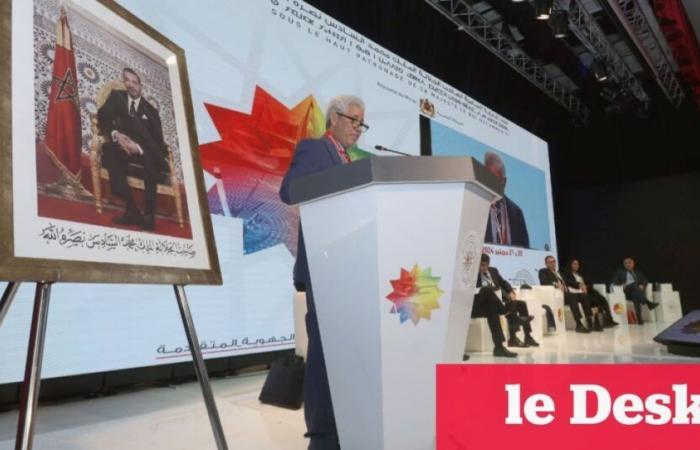2nd edition of the National Conference on Advanced Regionalization. Credit: MAP
The imperative is to address the issue of water stress in the different regions of the Kingdom as a “structural phenomenon”, as well as to strengthen solidarity between those with abundant water resources and those who lack them.
Participants in a workshop organized as part of the 2nd edition of the National Conference on Advanced Regionalization called, Saturday in Tangier, for the federation of regional efforts in order to meet the challenges linked to water stress in Morocco.
During this workshop, initiated under the theme “Securing water supply in the context of water stress, current challenges and perspectives”, they emphasized the major importance of projects launched in the field. water supply, in particular basin interconnection and integrated water resources management projects, capable of remedying the problem of the deficit in drinking and irrigation water in certain regions.
The speakers also highlighted the various projects carried out by the regions and ministerial departments concerned, with the aim of mobilizing the necessary water resources and facing the challenges linked to the evaporation of water from dams and the protection against the dangers of flooding.
In this context, the President of the Council of the Fez-Meknes region, Abdelouahad El Ansari, underlined the imperative to address the issue of water stress in the different regions of the Kingdom as “structural phenomenon”, as well as strengthening solidarity between those with abundant water resources and those who lack them.
He pointed out the various constraints and challenges linked to the overexploitation of groundwater, the pollution of valleys caused by industrial activities and the adoption of certain hydrovorous crops.
Regarding the programs and mechanisms adopted for water management in the Fez-Meknes region, El Ansari indicated that they relate in particular to the acceleration of the construction of dams and hill lakes and the realization of wells and boreholes to ensure the supply of drinking water to isolated areas.
For his part, the president of the council of the Béni Mellal-Khénifra region, Adil Barakat, estimated that climate change has considerably affected the region's water resources, noting that the Jorf Lasfar water desalination station, will not only provide water for OCP's industrial activities, but also drinking water for cities throughout this region. Among the main projects related to water management in the region is the OCP project for wastewater treatment, irrigation of green spaces and preservation of water resources, Barakat added, emphasizing the importance of the interconnection of hydraulic basins to promote agricultural activities and guarantee the supply of drinking water to the population.
For his part, the general director of hydraulic engineering at the Ministry of Equipment and Water, Abdelaziz Zerouali, noted that the policy pursued in terms of water management has made it possible to achieve several achievements, thanks to important hydraulic infrastructure, including dams, water diversion works, wells and boreholes for the exploitation of groundwater, seawater desalination plants and water treatment plants worn.
The ministry's new water strategy, he said, is based on six pillars linked to the management and development of supply, the management of water demand and its valorization, the protection of water resources and nature preservation, reducing the impact of risks linked to climate change, modernizing administration and qualifying human resources.
For her part, Zineb Akhanchouf, project manager at the French Development Agency in Morocco, shed light on the role of the AFD which supports, finances and accompanies the dynamic of sustainable development in more than 150 countries.
She recalled that AFD, which represents a partner “historical” of the Kingdom, supports Morocco in particular in the implementation of its New development model, in its aspect relating to water sanitation.
In continuation of this dynamic, she said, AFD reaffirms its support for the operationalization of priority actions linked to water resources and its commitment to contribute to financing the implementation of the national water strategy. 'water.
©️ Copyright Pulse Media. All rights reserved.
Reproduction and distribution prohibited (photocopies, intranet, web, messaging, newsletters, monitoring tools) without written authorization.






